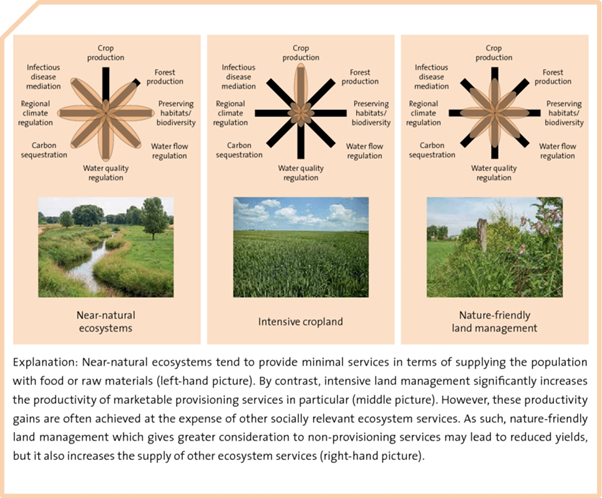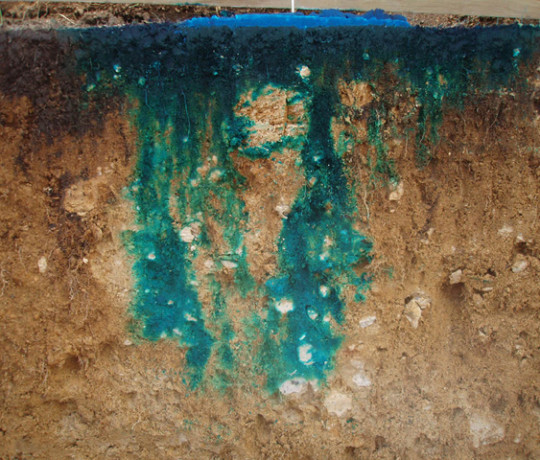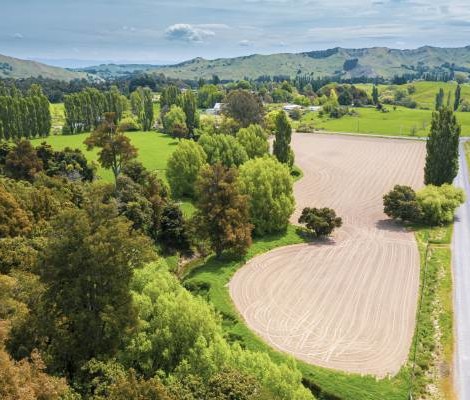Soils and land use
It is an urban myth that managing soils will result in degrading or deteriorating them. However, using a soil for a specific purpose will likely change several of the soil chemical, physical and biological properties over time.

Often it is the type and intensity of the intended use of the soil or land that will determine if these changes are favourable or rather undesirable from a human viewpoint.
To make things even trickier, when using land for agriculture, horticulture or forestry we will induce changes that enhance the production function, but at the same time may negatively impact on other soil functions such as e.g. the ability to filter water, or host biodiversity. Often, unfavourable on- and off-site affects of a particular land use are not immediately visible but take time to develop and become more pressing over time.
This means there are synergies, but also 'trade-offs' between the various soil functions. This is nicely illustrated by the right-hand image taken from Schröter-Schlaack et al. (2016).
Manaaki Whenua's ambition is that New Zealanders use our land, soil, and water resources wisely. Finding a healthy way to balance land and ecosystem use is critical to our future prosperity, using information and tools to support effective management of our land resources.


